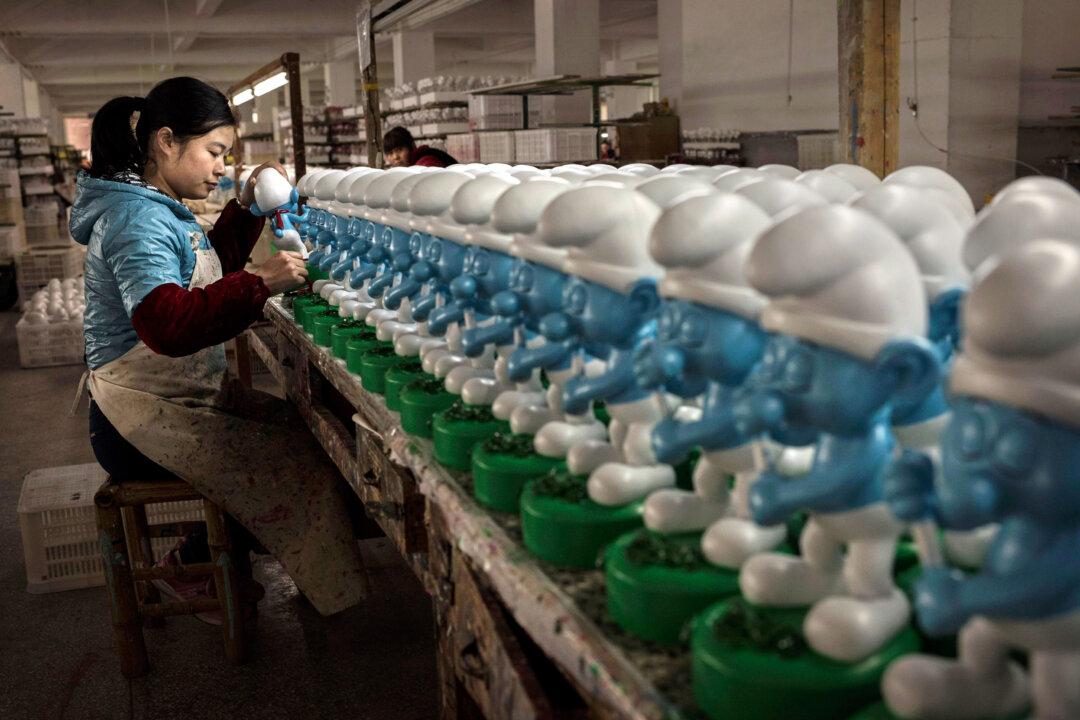The Chinese regime’s plans to create a middle class of consumers is facing a bumpy road. Rather than spend their money on Chinese products, wealthy Chinese are traveling abroad to buy everything from baby formula to toilet seats.
It was in November 2012 when the leader of the Chinese regime, Xi Jinping, first mentioned the “Chinese Dream.” Faced with a country riddled with corruption and a growing economic bubble, he grew this concept into a plan two years later to build a Chinese middle class that would become the cornerstone of society.
The “Chinese Dream” proposed by Xi was later described by Cheng Li, director of research and a senior fellow at the John Thornton China Center of the Brookings Institution, according to the state-run Xinhua news agency, as “a blueprint for an expanding middle class in China.”
Behind the visage of China being an economic powerhouse and a global manufacturing center, is a country slowly losing its economic glamour as its economy slows down. A core problem is that Chinese people do not have any faith in products “made in China.”
Rather than spend their money in China, members of the Chinese middle class are traveling elsewhere and stocking up on goods to bring back home. People in Hong Kong call the shoppers from the mainland “locusts,” since they buy up goods including baby formula, jewelry, bags of rice, toilet seats, and rice cookers.
The Chinese regime’s emphasis on economic growth has come at the cost of quality and has caused widespread pollution. According to Chinese news portal Sina.com, China’s Ministry of Environmental Protection released data in April 2014 stating that over 16 percent of the land in China is polluted.
In China, some rice farmers even refuse to eat the rice they grow themselves, because of heavy land pollution, reported Sina.com on Feb. 26.
Japan has been seeing a similar swarm of the Chinese “locust” shoppers. “Whenever there are mainland Chinese tourists, they would buy up every single toilet seat in our stock,” a Japanese retail worker at a duty free shop told Xinhua on Jan. 27.
On Taobao, the Chinese version of eBay, bags of rice produced in Japan were tagged with the marketing slogan “no heavy metal pollution, unlike those produced in China,” according to Sina.
Xinhua, one of the official mouthpieces of the Chinese regime, even commented, “In the future, can there be a product that is made in China, so that our own middle-class Chinese do not have to go to another country to buy toilet seats.”
As Chinese buyers turn outward, the Chinese economy is struggling. The image of China’s “booming economy” is likewise fading. A recent Gallup poll found that Americans are less intimidated by the Chinese economy. It found 60 percent of Americans—up from 48 percent in 2013 and 2014—do not view China’s economy as a critical threat to the vital interests of the United States.




